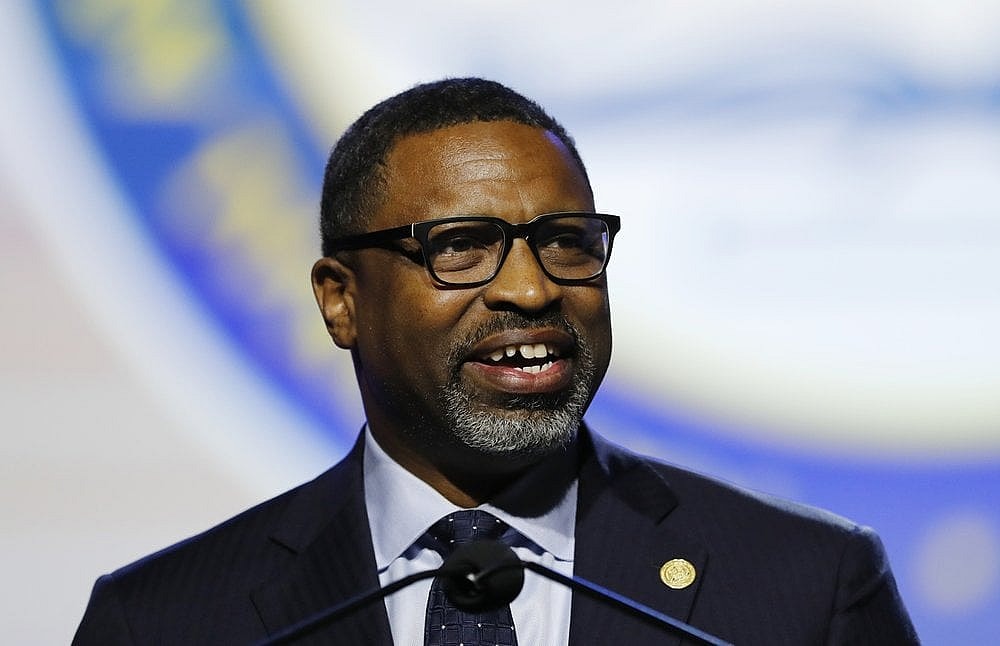The topic was institutional racism and it brought together several high-profile figures in the Black community to address and offer solutions to redress it.
Actor Anthony Anderson was the moderator of the discussion on Friday at the Omega Psi Phi Grand Conclave in Charlotte. Civil rights attorney Benjamin Crump, comedian D.L. Hughley and NAACP President and CEO Derrick Johnson participated, according to The Charlotte Observer.

The panelists addressed a range of issues, including police misconduct, the negative impacts of incarceration, the persistent achievement gaps in education and civic responsibilities like voting.
Crump, who has represented numerous families in lawsuits against law enforcement agencies, asserted that qualified immunity is an impediment to getting justice. “If a Black person had done something wrong, you’d see it on the 6 o’clock news,” Crump said.
“But when the police do something wrong, we have to fight for months to get the body camera video so we can see it,” he said of the policy that, according to the Legal Information Institute of Cornell Law School, “protects a government official from lawsuits alleging that the official violated a plaintiff’s rights,” The Observer reports.
Crump also reminded the conclave attendees that Black people are more likely than white people to be charged with felonies, which adversely affects their quality of life in numerous ways.
Picking up on the quality of life thread regardless of criminal charges, Johnson gave some stark examples. “The ZIP code we live in defines what health care we receive, whether the roads are paved and the infrastructure is developed, and whether or not the schools we attend actually have equity compared to white schools,” he explained. “The fact that there’s a distinction between a white and Black student is structural racism.”
Not surprisingly, the structural inequities also extend to homeownership, a point that Hughley addressed, invoking a study by the Brookings Institute. It found that homes of similar value in Black neighborhoods have 23% less value than those in neighborhoods where few or no Black people live. “The very homes you live in are devalued just because you’re Black and you live there,” the comedian and radio show host said. “It’s the same structure and on the same street as other homes, but just because Black people live there, it has less value.”
The panelists, The Observer reports, unanimously cited voting and jury duty as solutions to some of the structural inequities. Crump said one black person serving on a jury can be a difference-maker. “If you haven’t been called for jury service in two or three years, you have to ask yourself why not,” Crump said. “If you get that one Black person in the jury room, the whole conversation changes.”

Voting can also bring change, and Anderson stressed the importance of voting on the local level. “Get out and vote for your city council, your local mayor, your school boards and educate yourselves and educate yourselves on the issues that are on the ballot, because those are things that affect us that we absolutely can control if we just go out and punch the ticket.”
TheGrio is FREE on your TV via Apple TV, Amazon Fire, Roku and Android TV. Also, please download theGrio mobile apps today!

